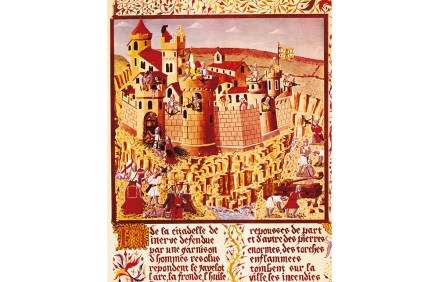The roots of anti-Semitism in Europe
The medieval trope that Jews are inherently bloodthirsty has echoed down the ages. Forms of the blood libel have been disseminated ever since the myth emerged in England in the 12th century with claims that Christian children were being ritually murdered by Jews in re-enactments of the crucifixion of Jesus. In the aftermath of 7 October, Labour’s Rochdale by-election candidate Azhar Ali accused Israel of lowering its defences so that it could justify the shedding of innocent Palestinian blood. Gigi Hadid, the American model, shared a video which alleged that Israel is harvesting the organs of Palestinians. The International Criminal Court’s pursuit of arrest warrants for the Israeli Prime Minister






